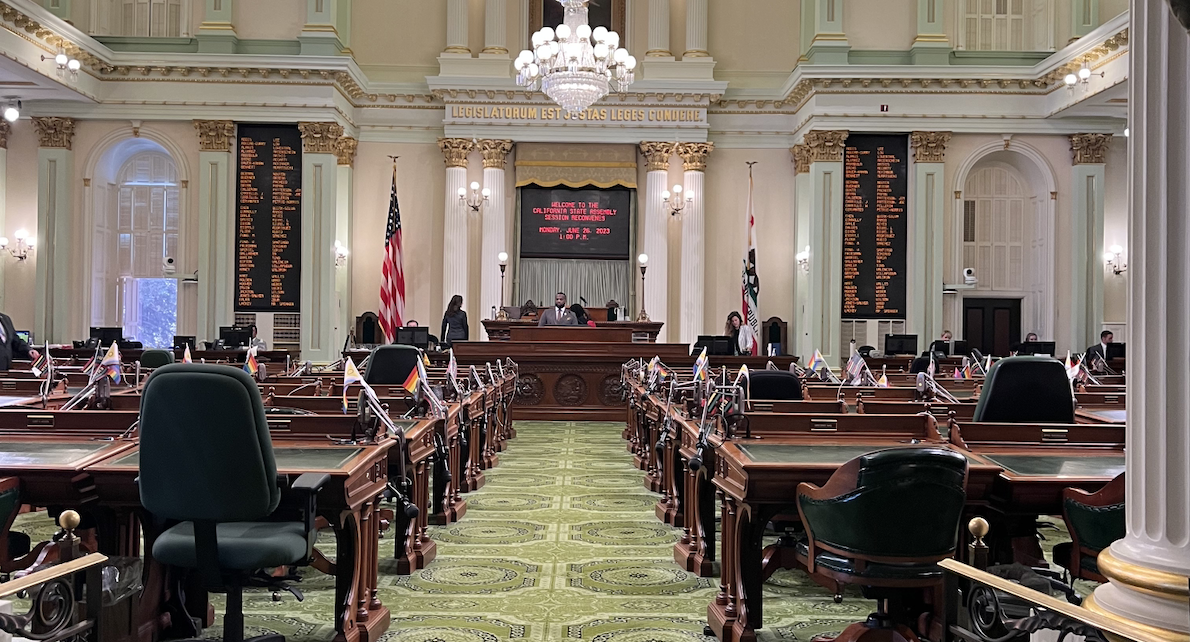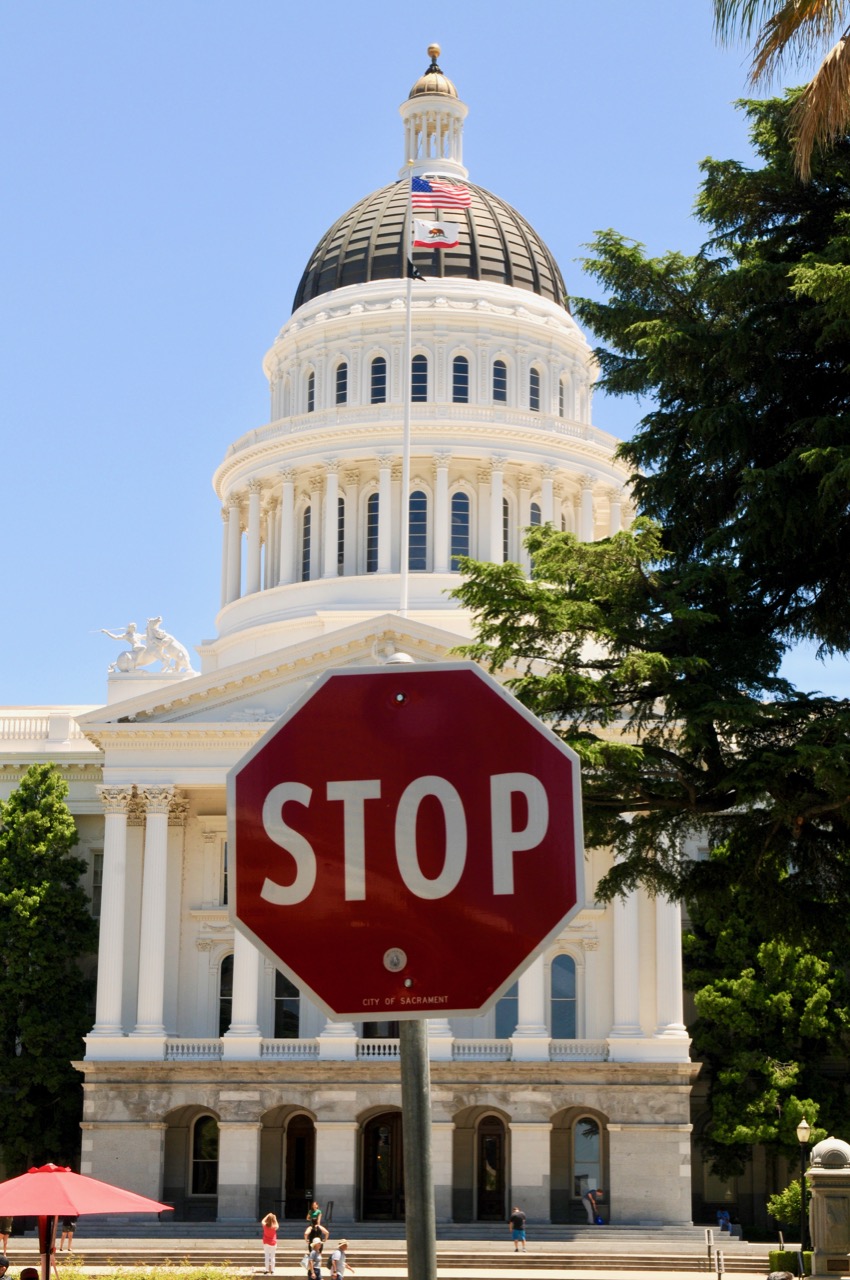
California State Senate Chambers. (Photo: Katy Grimes for California Globe)
Frequently Asked Questions about Legislative Rules of Decorum
In the Senate, who permits questions to be asked in a committee?
By Chris Micheli, December 16, 2023 7:19 am
Both the Assembly and Senate of the California Legislature, like other legislative bodies, utilize several rules, as well as customs and practices, for the purpose of ensuring that legislative deliberations and debate operate in a civil and orderly way. The individual house rules, as well as Mason’s Manual of Legislative Procedure, provide guidance in this regard.
In the Senate, who directs the order of presentation in a committee? The chair of the committee directs the order of presentation of the arguments for and against matters for consideration by the committee.
In the Senate, who permits questions to be asked in a committee? The chair of the committee permits questions to be asked by members of the committee in an orderly fashion and in keeping with proper decorum.
What must a Senator do on the Floor prior to addressing the Members? When a Senator desires to address the Senate, the Senator rises at the Senator’s desk, addresses the Presiding Officer, and, when recognized, proceeds to speak.
Are there any limitations for a Senator when speaking on the Floor? When speaking, the Senator must confine the Senator’s remarks to the question before the house. A Senator may not speak more than twice in any one debate on the same day, and at the same stage of the bill, without permission.
Are there any special rules for Senators speaking on the Floor during deadline times? During the five days prior to the deadline for each house to pass bills introduced in that house, as well as the five days prior to the last day for each house to pass bills, there may be limits on the number of speakers per measure, and the time allotted to each speaker as long as these limits are applied equally to speakers in support and in opposition.
In the Senate, can the bill author or floor manager answer questions posed by colleagues on the Floor? The author or floor manager has the privilege of closing the debate, and they may elect to answer questions raised in the debate during the author’s or floor manager’s closing.
What must a, Assembly Member do on the Floor prior to addressing the Members? When a Member desires to address the Assembly, the Member must rise from the Member’s seat and respectfully address the presiding officer. Upon being recognized, the Member may speak.
Are there any limitations for an Assembly Member when speaking on the Floor? A Member may not speak more than once during the consideration of any one question on the same day and at the same stage of proceeding, except that the author of a bill or resolution or the mover of a question has the right to open and close the debate. Also, a Member may not be allowed to speak more than five minutes to open and five minutes to close the debate on any question.
In the Assembly, what the basis for the rules of decorum? Members of the Assembly are required to conduct themselves in accordance with the rules of decorum specified in “Mason’s Manual of Legislative Procedure.”
In the Assembly, what are “Breaches of the Order of the House”? Legislators should not “resort to persistent irrelevance or to persistent repetition,” and “the consequences of a measure may be denounced in strong terms; but to attack the motives of those who propose or advocate it is not in order.”
In the Assembly, what limit is there on words in debate? Legislators may not use indecent language with reference to the body (i.e., the legislative body – Legislature) or its Members.
In the Assembly, how do Members refer to their colleagues in debate? “A Member, in referring to another Member, should, as much as possible, avoid using (their) name, rather identifying (them) by the district which (they) represent, (their) seat, as the Member who last spoke, or by describing (them) in some other manner.”
- Miscellaneous Civil Action Proceedings - February 23, 2026
- Probate Code Could Be a Basis for Statutory Interpretation Principles - February 22, 2026
- Conservation Banks - February 22, 2026




